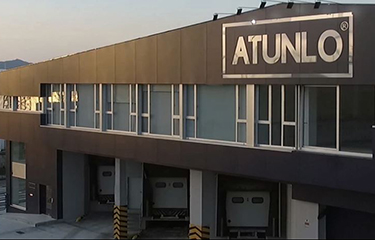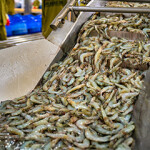Spanish seafood entities Atunlo, Fandicosta, Actemsa enter pre-bankruptcy process

Spanish seafood firms Atunlo, Fandicosta, and Actemsa have initiated formal pre-bankruptcy procedures, bitten by financial pressures related global trading shifts and higher interest rates.
Vigo, Spain-based tuna specialist Atunlo is suffering from surplus stocks and sales declines, forcing it to make a formal filing with a Spanish bankruptcy court that it intends to seek to negotiate with its creditors due to an inability to meet all its current expenses. Compañía Internacional de Pesca y Derivados (Inpesca), which owns 50 percent of Atunlo, with Comercial Pernas (Coper) holding the other half, has called an urgent extraordinary meeting for Tuesday, 7 November to discuss Atunlo’s financial situation, according to Faro de Vigo.
Under Spanish law, Atunlo has three months from the date of its filing to create a restructuring plan and get it approved by its creditors. If it fails in that task, it is required to make a formal bankruptcy declaration. Consulting firm Deloitte has been hired to advise the company through the process. It is likely Atunlo will sell off stock or seek a capital injection as a means of solving its capital crunch. The company recorded EUR 221 million (USD 233.7 million) in sales in 2022 and has EUR 94 million (USD 99.4 million) in assets, including commercial value, raw materials, and finished product.
Fellow tuna specialist Actemsa, headquartered in A Coruña, Spain, also filed a pre-bankruptcy notice on 27 October. The company, which operates a 12,000-square-meter processing plant as well as a canning facility in Brazil, and which had EUR 175 million (USD ) in sales in 2022, is also struggling with overtstock and falling tuna sales – down by between 25 to 30 percent, and as a result, its reliance on independent vessels for its sourcing has contributed to its weak financial position, according to Faro de Vigo.
Actemsa currently owes EUR 114 million (USD 120.5 million) to creditors, including EUR 44.1 million (USD 46.6 million) in short-term obligations. It is in the midst of a EUR 10 million (USD 10.5 million) investment program that includes an update of its freezing and bagging operations, according to La Voz de Galicia.
Fellow Galician seafood firm Fandicosta has also made a pre-bankruptcy filing, Faro de Vigo reported. The Domaio, Pontevedra, Spain-based seafood supplier has EUR 72 million (USD 75.9 million) of short-term debt and EUR 24 million (USD 25.3 million) in long-term debt, which it mostly took on in 2021 to survive the Covid-19 pandemic. Its ownership group entered Fandicosta into a sale process earlier this year, with fellow Galician seafood firms WOFCO and Frigoríficos del Morrazo named as leading takeover contenders.
Fandicosta can continue with its sale process despite its pre-bankruptcy filing and the creation of its restructuring plan, for which Deloitte and Garrigues have been hired as advisors.
In response to the turmoil, Spanish banks are tightening financing conditions for seafood sector players, Faro de Vigo reported.
“The banks are afraid, that's how it is. The entire financial sector is on alert, asking many questions,” an unnamed source from the Spanish banking sector told the newspaper. “The sector needs time. We are afraid that the banks will rush and restrict financing.”
Galician fishing vessel operators are also taking defensive measures to protect themselves from potential losses due to bankruptcy filings, forming a pooled group that jointly hired two law firms to prepare for negotiations on debt refinancing.
Additionally, at least three Spanish-owned tuna vessels have been listed for sale, and more vessels are hesitating to head out on fishing trips, worried they’ll be stuck with a hull full of product and no interested customers.
"The boats have to be equipped. There are some that don't know whether to leave or not, it may not be worth it," a source with familiarity with port operations in Galicia told Faro de Vigo.
Photo courtesy of Atunlo






Share